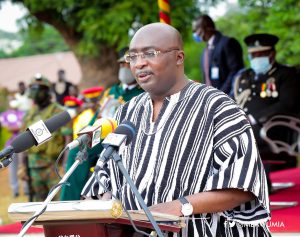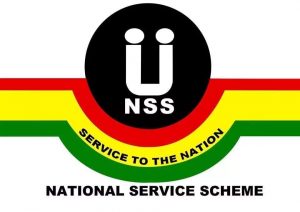The decision of government to align all technical and vocational educational training (TVET) institutions under the supervision of the Ministry of Education, is to ensure that the curricula being used by the various skills training institution, reflect the needs of the industrial sector.
The move is also to enable the ministry to ensure that all the schools will award the relevant certificates in conformity with the skills they acquire, through improved coordination, standardisation and policy coherence.
The Minister of Education, Dr Matthew Opoku Prempeh, who justified the government’s decision, explained that currently, there were 119 skills training centres and institutions scattered among almost all the ministries, most of which did not have certification.
Dr Prempeh made the statement when he welcomed the President of World Skills International (WSI), Dr Simon Bartley, to his office in Accra on Tuesday.
World Skills
Dr Bartley was in the country to assess Ghana’s readiness to join the organisation after the country expressed interest in being part of its activities.
When finally admitted to join the organisation, Ghana will be the first country in the West African region to have joined as the 81st country in the world.
He said for the country to develop, TVET was the way to go and in order to prepare the skills requirements, that informed the decision of government to realign all the 119 training schools under the education ministry.
Dr Prempeh said there was the need to use modern communication strategies to change the wrong perceptions about TVET in the country, bearing in mind the wrong notion that anyone in the technical and vocational sector was considered a drop out.
Dr Prempeh expressed worry that even though the country abounded with natural resources, it continued to export its products in their raw state.
He listed the natural resources in the country to include gold, cocoa, iron ore, steel, bauxite, salt and forest, adding, “even including the human beings, we export them raw and so, when you hear human beings crossing the Mediterranean Sea, they are crossing without talents and so they are raw.”
Competition
He said, for instance, that even though the country had discovered commercial oil in 2010, no institution in the country was awarding certification of international standards for undersea welding.
“We have been noted and previously called Gold Coast, but we do not have a jewellery business, we have iron and manganese, we don’t have a steel business, we have abundance of resources to be player in the steel industry but we still export our manganese without values,” he said.
He said the ministry was encouraging students in the skills development area to embrace competition and commended the WSI for instituting the competition to encourage the youth to develop the interest in skills development.
“Our agenda is to emphasise that skills training is the way,” Dr Prempeh stated announcing that government had sought for loans to refurbish most of the public technical institutes, technical universities, the polytechnics and all the national vocational training centres in the country.
“But the icing on the cake is the state-of-the-arts technical and vocational centres that we want to build and also train the faculties that will train the people in the current modern curriculum,” the minister said.
Assessment
Explaining the purpose of his visit, Dr Bartley said Ghana had indicated its wish to join the World Skills movement and his visit was the last of the various processes a country had to meet before being admitted into the “World Skills family.”
“I have come here to meet with the Minister of Education under who the Council for Technical and Vocational Education and Training (COTVET) led by Mr Fred Kyei Asamoah, operates to enable me to learn a little more of why Ghana must join the family.
“I am here also to give some advice to COTVET about who they might consider as delegates to the World Skills International General Assembly because they will be the people who will represent Ghana and who will bring back the lessons that can be learnt from the rest of the 80 member-states to improve the vocational education system,” he explained.
Dr Bartley said Ghana was at the verge of being admitted into the family of the World Skills International, explaining that as he returned, he was going to meet with the board of the organisation after which Ghana would be admitted as the 81st member.
In a brief comment, the Executive Director of COTVET, Mr Fred Asamaoh, said Ghana joining the World Skills family meant a lot to the country’s skills development.
He said Ghana’s admission would not only generate employment opportunity for the youth because of the kind of skills they would acquire, but it would also put the country on the map of a skills development nation.
Graphic.com.gh






